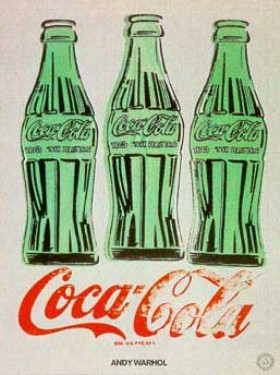If you asked me today to do what I did then, I’d have no clue where to even start. My point is that I’ve never lived without technology. Remembering that I used to know more about computers and how to write html makes me sympathize with old people who can’t use a remote.
In the past few weeks, I’ve been thinking about the movie “The Gods Must Be Crazy. It’s been many years since I’ve actually watched the film, but I know that basic plot is that some dude in some remote land finds a classic glass coke bottle and brings it back to his tribe. The tribe uses the bottle for various purposes that seem to make their life easier. This simple glass bottle was technology for them, but in the process of trying to make use of it, this otherwise peaceful tribe encounters conflicts within their group.
In some aspects, the Coke bottle fits the Instrumental theory of technology:
- technology is neutral, just a tool
- technology has no social agenda
- technology is indifferent to politics
- technology is rational and verifiable
- technology is efficient--it has standards and norms
- technology is transferable to other cultures
- values can be accommodated by technology but at costs to efficiency
- (http://wiki.wsu.edu/wsuwiki/Instrumental_Theory)
But there is one line in there that I am having problems with:
technology is transferable to other cultures.
I am okay with technology being an inanimate object. As far as I am aware, nobody has ever created real-life Hal. Therefore, I am okay with values being accommodated by technology, but if you throw a Coke bottle or a computer and CD-Rom out of the window of a light airplane onto some unsuspecting tribe who has never seen these things before, you’re going to end up with some ramifications. Okay, so maybe the ramifications aren’t severe and will work themselves out, but I’m just saying…
Neutrality is one of the key concepts in the instrumental theory and it points out that technology is just a tool, that this inanimate object is not scheming to destroy the world. But let’s go back to the “Gods.” What if that tool is not used how it was meant to be used? I’m sure the tribe used the bottle to carry water, but what if they used at as a club and beat someone over the head with it? The bottle is still neutral, it’s still a tool, so then we have to look to the substantive theory of technology.
This blurb goes on to say that the substantive theory pretty much blames the technology and not the user (maybe the author was reading Donald Norman’s “The Design of Everyday Things”)? Hey, the bottle looked like it would do some damage, so I thought I’d give it a shot? But I regress….“According to Andrew Feenberg, a substantive theory of technology assumes that a technology's design will fundamentally change the ways in which an organization (or a culture) operates. Neil Postman and Marshall McLuhan take a substantive approach to television, for example, by asserting that the design of the medium changes that way American culture operates. (See Postman's Amusing Ourselves to Death,” for example.)”
Yet the Coke bottle can fit within the Substantive theory:
- technology is not neutral, it is not just a tool
- technology is autonomous--it exists beyond culture
- people are the raw materials--the standing reserve--of a technical system
- technology becomes the environment
- people can make choices about technology
- http://wiki.wsu.edu/wsuwiki/Substantive_Theory
The last two points on this list make sense to me, but only in conjunction with the instrumental theory. If the technology is very useful, then people are going to want to use it everyday and it will then become part of their environment. MS DOS? Not so useful anymore but when it was useful to amuse me, it was very much part of my environment. Same goes for writing html. When I first started to learn it, I thought, hey cool, I can design a webpage by typing in junk. Push-Button publishing came along at a good time because there was no room left in my head for .
I make choices about the technology I use. I put off getting access to the internet in my home for a year and I don’t subscribe to cable. I didn't have a need for internet before and i don't watch that much t.v. But when i decided to subscribe to the internet, the jerk at Comcast and I ended up arguing about how stupid it would be for me to pay for a bundled service when I only had use for one of the technologies. I don’t think Comcast has gotten the memo from FCC yet. (http://en.wikipedia.org/wiki/Naked_DSL#United_States) But I regress…
As with transformations in medical and other scientific technology, the uses for media technology can be good or bad, but it is not the technology itself, it is the values within the person that commands it that make it so. To the best of my knowledge, the whole concept of modernity refers to how we can progress towards the future which entails leaving “tradition for tradition’s sake” behind. I don’t find this to mean that we have to leave intrinsic values and ethics behind too. Feenberg argues “current scientific and technical knowledge has resources for a very radical reconstruction of the technological heritage if these are appropriated in the right spirit.” I agree.








